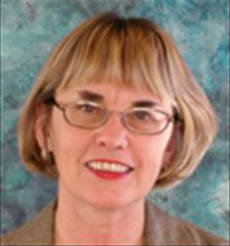South African poet brings pain of apartheid to USU
October 31st, 2010 Posted in Arts and LifeBy Alex Thatcher
Ingrid de Kok, one of South Africa’s most important poets, offered a reading of her poetry and a presentation for faculty, students, and the general public at USU on Thursday.
 Kok, a professor at the University of Cape Town and winner of many writing awards, spent 45 minutes reading her own poetry in a lilting South African accent. Her poems reflected many of her life experiences, including growing up in a segregated mining town, observing Canadian Geese while she lived in Canada, and observing the HIV-AIDS epidemic in Africa.
Kok, a professor at the University of Cape Town and winner of many writing awards, spent 45 minutes reading her own poetry in a lilting South African accent. Her poems reflected many of her life experiences, including growing up in a segregated mining town, observing Canadian Geese while she lived in Canada, and observing the HIV-AIDS epidemic in Africa.
Much of her poetry also focused on apartheid and South Africa’s Truth and Reconciliation Commission, which oversaw the process of healing a nation after the end of apartheid. The commission invited witnesses of victims of gross human rights violations to give statements about their experiences. This revealed the cruel acts of apartheid, a system of legal racial segregation enforced for generations by the former South African government.
One of the poems Kok shared, “The Middle Class Worries About Darfur,” describes the middle-class having enough to eat while others are starving. “Have you ever been told by your mother to finish your food because there are children in Africa who are starving?” said Kok. “This poem is about those starving in Darfur, my home town.”
A few segments of this poem show Kok’s view toward this attitude of the middle class and demonstrate her style of writing:
Filling our stomachs would appease the starving
As if by magic…
Tony believes something should remain for the Big Other
But even now the spectre of the Armenian child
Hovers by my plate: should I leave something for her
(But how will she fetch it?)
Or should I lick my plate clean, leave nothing,
(And then what would she eat?)
Kok’s writing about the Truth and Reconciliation Commission included accounts of eyewitnesses who testified at hearings about violent acts toward the black population. These poems are somber and sad, illustrating the horror that was brought about because of racial segregation. She wrote these poems with the purpose of keeping these horrible things from happening again.
“Poetry is a violence from within that protects us from violence from without,” the poet said. “The past is too often becoming a record for reflection and not a call to action.”
One of her poems, “Body Parts,” ends with the line, “give us new bearings,” which Kok said “is what I hope we find in South Africa since the Truth and Reconciliation Commission and the many poems and literature on the subject.”
Kok’s audience was visibly moved by the experience and her accounts and perspectives on South African violence.
“They were beautiful poems,” said student Benjamin Allred. “They carried a lot of emotion and I liked her imagery.”
Associate Professor Shane Graham of the English Department, who helped get Kok to visit Utah State, was enthusiastic about the message she brought with her.
“I think she’s fantastic,” said Graham, whose research deals with South African writers. “In my opinion she’s the best writer on the Truth and Reconciliation Commission.
“It was wonderful to hear the poems in her own voice,” he said. “It really brought them to life.”
TP
Tags: aparteid, Ingrid de Kok, South African poet

Sorry, comments for this entry are closed at this time.